Graham Reid | | 4 min read
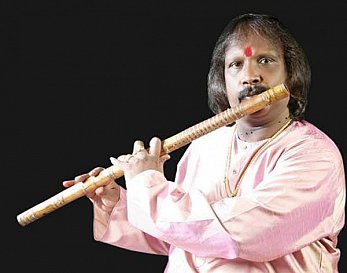
In many ways, the Indian musician
Rajendra Prasanna is an emblem of his country's classical tradition.
As with so many Indian musicians, he grew up in the gurukal system
where he was one of a long lineage who had been taught by their
musician father who would pass on the knowledge acquired from the
previous generation.
Prasanna's father and grandfather were
both musicians, but in some way Prasanna also broke with tradition.
He is one of the rare musicians who plays both shehnai and flute,
learning the former from his father and the latter from his
grandfather who was a legendary innovator and influence in classical
Indian flute.
And the gift gets passed on again:
Rajendra Prasanna's son Rishab is also a flute player an a member of
the small touring group which is bringing the spirit of Indian
classical music to the Taranaki Womad and Auckland Festival (dates below).
“Yes, the music comes down from many
generations and continues through an unbroken chain,” says Rishab
who speaks for his father who has politely said his English is not so
strong before passing the phone over.
Rajendra Prasanna was born in 1956 and
made his first concert appearance before he was in his teens, which
placed him directly in that period when Indian music – through the
passion of George Harrison and the profile of Ravi Shankar – was
gaining international attention.
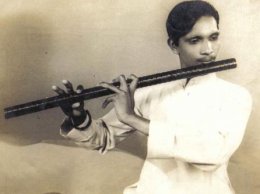 “It was the shehnai that my father
first learned to play,” says Rishab. “My grandfather introduced
flute into my family and then he made many disciples in India and you
will see that the way the flute is played in India today is because
of the contribution of my grandfather.
“It was the shehnai that my father
first learned to play,” says Rishab. “My grandfather introduced
flute into my family and then he made many disciples in India and you
will see that the way the flute is played in India today is because
of the contribution of my grandfather.
“My father went to Calcutta to a
music conference when he was 12 and that was where he first played in
public.”
Yet for someone so grounded in the long
tradition, the music around him was changing rapidly. Ravi Shankar
has often complained that the music was misunderstood by many in the
West, notably hippies who thought of it as stoner music, but also
inside India where many musicians changed their style to cater for
the growing international audience. Long ragas became truncated to
fit onto LP record, some even edited down to just the fast passages
for singles in the hope of getting radio play. And many musicians
chased the money not the art.
“Because of the contribution of
Pandit Ravi Shankar in the Sixties and Seventies our music became so
popular and many other artists came to understand Indian music. But
my father is very clear about how the music changed and he did not
like that.
“In India we are having many
conferences about that and the questions are, “Who is the real
artist? Who is performing for art and who just for business?” Now
some people want publicity and to attract the public and this is a
different form and not a true art.
“We don't have an intention for
business and publicity, keeping the true art intact is very much away
from these intentions. An artist is complete when he is doing it
fully from himself and feeling that his art is giving him full
satisfaction, rather than if the main aim is to have money and a
business and popularity.
“So this has all been changing and
you see many big Indian artists coming to different countries. But
for us it is important to just present it they way you would in
India, with your soul in it.
“My father is also thinking like
that, that wherever you go you should play your true art rather than
focus on other things. If you focus on your art then only ultimately
it will attract a true audience, if it gives you satisfaction it will
give them true satisfaction.”
Rajendra Prasanna has taken his art to
some impressive stages – he has accompanied Ravi Shankar, including
at the 2002 Royal Albert Hall in the Concert for George – but has
also created soundtracks for Indian films, although Rishab is quick
to note, “not for Bollywood”.
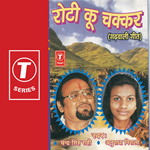 “He didn't work for Bollywood but
worked with many folk music tunes from different parts of India for
smaller films. Rather than make a career in Bollywood he was more
keen to enrich the authentic folk music.”
“He didn't work for Bollywood but
worked with many folk music tunes from different parts of India for
smaller films. Rather than make a career in Bollywood he was more
keen to enrich the authentic folk music.”
Rishab says when the group – with
Vikas Babu on shehnai and Shub Maharaj on tabla – play in New
Zealand and Australia in the coming months they will reach back into
that long tradition and play in the manner of classical raga where
the music develops slowly.
“We play a little alap and this is a
slow improvisation, and then after that it is slowly increasing the
tempo and at the last it is going very fast. This is a principle of
classical music, the little increasing slowly affects the human
emotions in a good way, rather than if you just do something very
fast and then something very slow. It is a complete balance, just
like we can not get shocking news and happy news one after another.
“So we do things slowly slowly and it
becomes a little increase in an ascending way.
“I have to say, we are very excited
to come, it will be our first time in Australia and New Zealand and
we hope to play very well for you all.
“We've heard wonderful stories of Womad and the Auckland Festival, so coming to those is a great honour.”
Rajendra Prasanna and group play the Taranaki Womad March 18-20, 2011 and one concert only in the Auckland Festival on Tuesday March 15 in the Auckland Town Hall Concert Chamber.

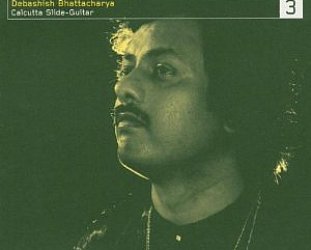
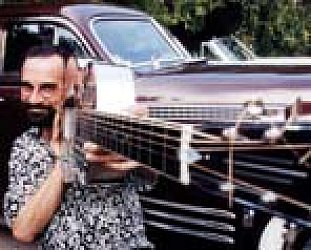
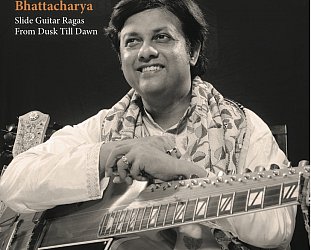

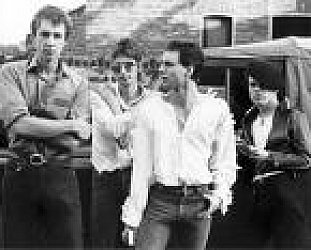
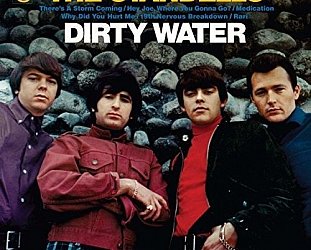
post a comment